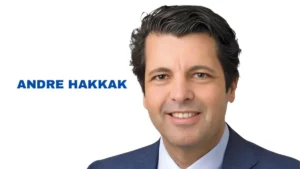In a modern digital world where content can be shared instantly across the globe, the tragic story of Ronnie McNutt serves as a sobering reminder of the complexities and ethical challenges faced by social media platforms. Ronnie McNutt, a 33-year-old American and U.S. Army Reserve veteran from New Albany, Mississippi, committed suicide in a horrifyingly public way—by shooting himself during a Facebook livestream on August 31, 2020. This incident not only highlighted significant issues regarding content moderation on social media but also raised serious questions about community responsibility, mental health awareness, and the effects of viral content on public sensibilities.
Background on Ronnie McNutt
Ronnie McNutt was born on May 23, 1987, and served in the U.S. Army Reserve, experiencing the myriad challenges that often accompany military service. Friends and family described him as a compassionate and energetic individual who struggled with the impact of his experiences. Like many veterans, Ronnie McNutt faced challenges related to mental health, which were exacerbated by personal hardships including job issues and relationship breakdowns.
The Incident
On that fateful night in August, McNutt, visibly distressed and under the influence of alcohol, began a Facebook livestream—a medium he had used before to connect with friends and share thoughts. However, this stream was starkly different. Holding a bolt-action rifle and exhibiting signs of severe emotional distress, Ronnie McNutt’s demeanor was immediately worrying to those who knew him well.
Joshua Steen, a close friend of McNutt, noticed the livestream and was alarmed by what he saw. Recognizing the potential danger, Steen attempted to intervene by reaching out to Facebook for help, urging them to end the livestream and thus prevent any harmful outcomes. Despite these efforts and the apparent risk, the livestream continued, reportedly because McNutt had not yet violated any of Facebook’s broadcasting guidelines.
Facebook’s Response and the Fallout
The continuation of the livestream allowed thousands of people to witness McNutt’s tragic death in real-time. The video quickly went viral, spreading across various social media platforms and shock websites. The graphic nature of the content and its easy accessibility led to widespread criticism of Facebook’s slow response and failure to prevent the distribution of such disturbing material.
Critiques of Facebook pointed to a need for more robust mechanisms for flagging and stopping potentially harmful content. Moreover, the incident sparked a broader debate about the responsibilities of social media platforms to control the content that gets published and to respond more effectively in crisis situations.
Ethical and Social Implications
The suicide of Ronnie McNutt raises multiple ethical and social questions:
- Platform Responsibility: Social media platforms, like Facebook, serve as public stages for sharing personal moments, but they also have the responsibility to safeguard users. The McNutt case exposed gaps in real-time content monitoring and crisis response, highlighting the need for clearer policies that prioritize user safety over content freedom.
- Mental Health Awareness: McNutt’s death underscored the importance of addressing mental health issues, particularly among veterans, and the role of social media as a double-edged sword in mental health advocacy and stigma.
- Viral Nature of Tragic Content: The rapid spread of the livestream video reflects a grim aspect of human curiosity and the sensationalism that often accompanies digital content sharing. This brings up critical questions about the societal desensitization to violence and the ethical consumption of digital content.
- Community and Individual Responsibility: There is also the question of community responsibility in such situations. The interaction of viewers during the livestream, including encouraging or discouraging words, plays a significant role in the unfolding of such tragic events.
Conclusion
The story of Ronnie McNutt is a tragic reminder of the potent mixture of personal vulnerability and the expansive power of digital platforms. While it highlights the urgent need for improved practices in social media monitoring and intervention, it also calls for a collective reflection on our role as consumers of digital content and our actions in the online spaces we inhabit.
As technology continues to advance, creating ever more interconnected digital experiences, the lessons from McNutt’s story remain relevant. They serve as a call to action for social media giants, users, and policymakers to foster environments that prioritize mental health, ethical engagements, and the protection of personal dignity in digital realms.








